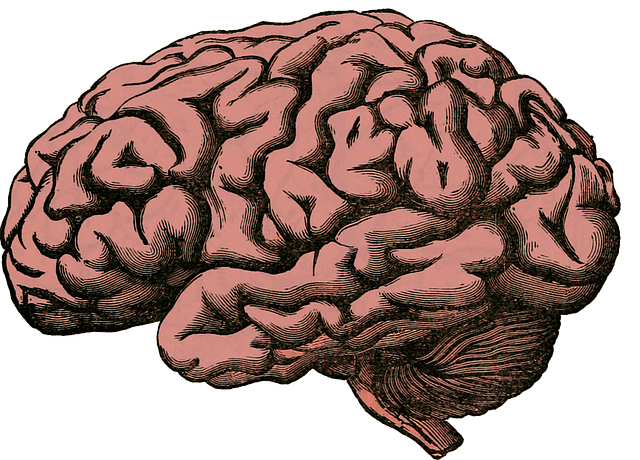Understanding Mental Health Data for Therapy for Adults Mandarin Chinese Speaking communities involves tailored therapy sessions, translations, and culturally adapted tools for accurate data collection. Advanced analytics enable therapists to develop personalized interventions based on cultural nuances, enhancing treatment outcomes. By integrating technology and cultural understanding, access to quality mental health care improves, addressing both common issues and unique cultural contexts. Ethical considerations ensure data interpretation respects diverse beliefs and experiences, leading to culturally relevant Mental Health Education Programs that promote emotional well-being for this demographic.
Mental health data analysis is a powerful tool for understanding and improving therapy outcomes, especially within diverse communities like those of adult Mandarin Chinese speakers. This article explores the process of analyzing and interpreting mental health data, from collecting and preparing sensitive information to leveraging advanced analytics techniques. We delve into strategies that enhance personalized care, such as tailored treatment plans based on data insights. Additionally, ethical considerations for cultural sensitivity are discussed to ensure responsible data analysis in this specific population, thereby improving access to effective therapy for adults speaking Mandarin Chinese.
- Understanding Mental Health Data: Collection and Preparation
- Advanced Analytics for Adult Mandarin Chinese Speakers' Therapy
- Interpreting Findings: Personalized Care and Treatment Strategies
- Ethical Considerations in Data Analysis for Cultural Sensitivity
Understanding Mental Health Data: Collection and Preparation

Understanding Mental Health Data is a crucial step in any analysis process. Collecting data on mental health involves various methods such as surveys, clinical assessments, and digital tracking tools. For communities with specific linguistic needs, like Mandarin Chinese-speaking adults, tailored therapy sessions and translations are essential to ensure accurate data collection. This involves designing accessible survey questions and adapting assessment tools to fit cultural contexts, ensuring participation from diverse populations.
Preparation of this data requires cleaning and organizing it for analysis. This process includes handling missing values, identifying outliers, and categorizing information for deeper insights. Incorporating data from various sources allows for a comprehensive understanding of mental health trends within these communities. For example, Mental Health Education Programs Design can benefit from such data to create targeted interventions, while Coping Skills Development strategies can be enhanced by analyzing trends in self-reported well-being over time.
Advanced Analytics for Adult Mandarin Chinese Speakers' Therapy

For adult Mandarin Chinese speakers seeking therapy, leveraging advanced analytics can significantly enhance treatment outcomes and personalized care. By employing sophisticated data analysis techniques, therapists gain deeper insights into the unique challenges faced by this specific demographic. This includes cultural nuances that may influence mental health expressions and preferences for therapeutic approaches. Advanced analytics facilitate tailored interventions, such as incorporating culturally sensitive mood management strategies or trauma support services, ensuring effective emotional regulation.
Through data-driven decision making, therapists can adapt their practices to meet the specific needs of adult Mandarin Chinese speakers. This not only improves access to quality mental health care but also fosters a more inclusive and successful therapeutic environment. By integrating technology and cultural understanding, therapy becomes more accessible and impactful for this population, addressing both common mental health issues and the unique cultural context in which they arise.
Interpreting Findings: Personalized Care and Treatment Strategies

Interpreting data from mental health surveys is a pivotal step towards tailoring treatment plans for individuals, especially those who may be facing language barriers like Mandarin Chinese speakers. When analyzing responses, it’s crucial to consider cultural nuances and personal experiences that influence an individual’s mental well-being. This involves delving into the specific challenges faced by this demographic, such as limited access to therapy for adults speaking Mandarin Chinese, and understanding how these impact their mental health.
By interpreting findings through a personalized lens, healthcare providers can design targeted interventions and treatment strategies. This may include advocating for increased Mental Health Policy Analysis and Advocacy that addresses language accessibility, integrating Risk Management Planning for Mental Health Professionals to mitigate potential cultural pitfalls, and fostering Inner Strength Development programs tailored to the unique needs of Mandarin-speaking adults. Such approaches ensure that care is not only accessible but also culturally sensitive and effective.
Ethical Considerations in Data Analysis for Cultural Sensitivity

When analyzing mental health data with a focus on Therapy for Adults Mandarin Chinese Speaking populations, ethical considerations take on heightened importance. Cultural sensitivity is crucial in ensuring that data interpretation respects and reflects the diverse beliefs, values, and experiences of individuals from various ethnic backgrounds. Researchers and practitioners must be mindful of potential biases inherent in data collection methods and tools, especially when dealing with sensitive topics like mental health within specific cultural contexts.
In the pursuit of Emotional Well-being Promotion Techniques and Inner Strength Development for Mandarin Chinese speaking adults, it’s essential to design Mental Health Education Programs that are culturally relevant. This involves considering not only language translation but also tailoring interventions to address unique psychological and social factors. By integrating these considerations into data analysis practices, we can foster more inclusive and effective mental health support while promoting accurate understanding and respect for diverse cultural identities.
Mental health data analysis plays a pivotal role in enhancing therapy for adults speaking Mandarin Chinese. By understanding and interpreting this data, healthcare professionals can tailor personalized care plans that address unique cultural nuances. Advanced analytics techniques enable more effective treatment strategies, ensuring culturally sensitive approaches that resonate with diverse patient populations. Embracing these methods not only improves outcomes but also fosters trust and engagement within the therapeutic process.













